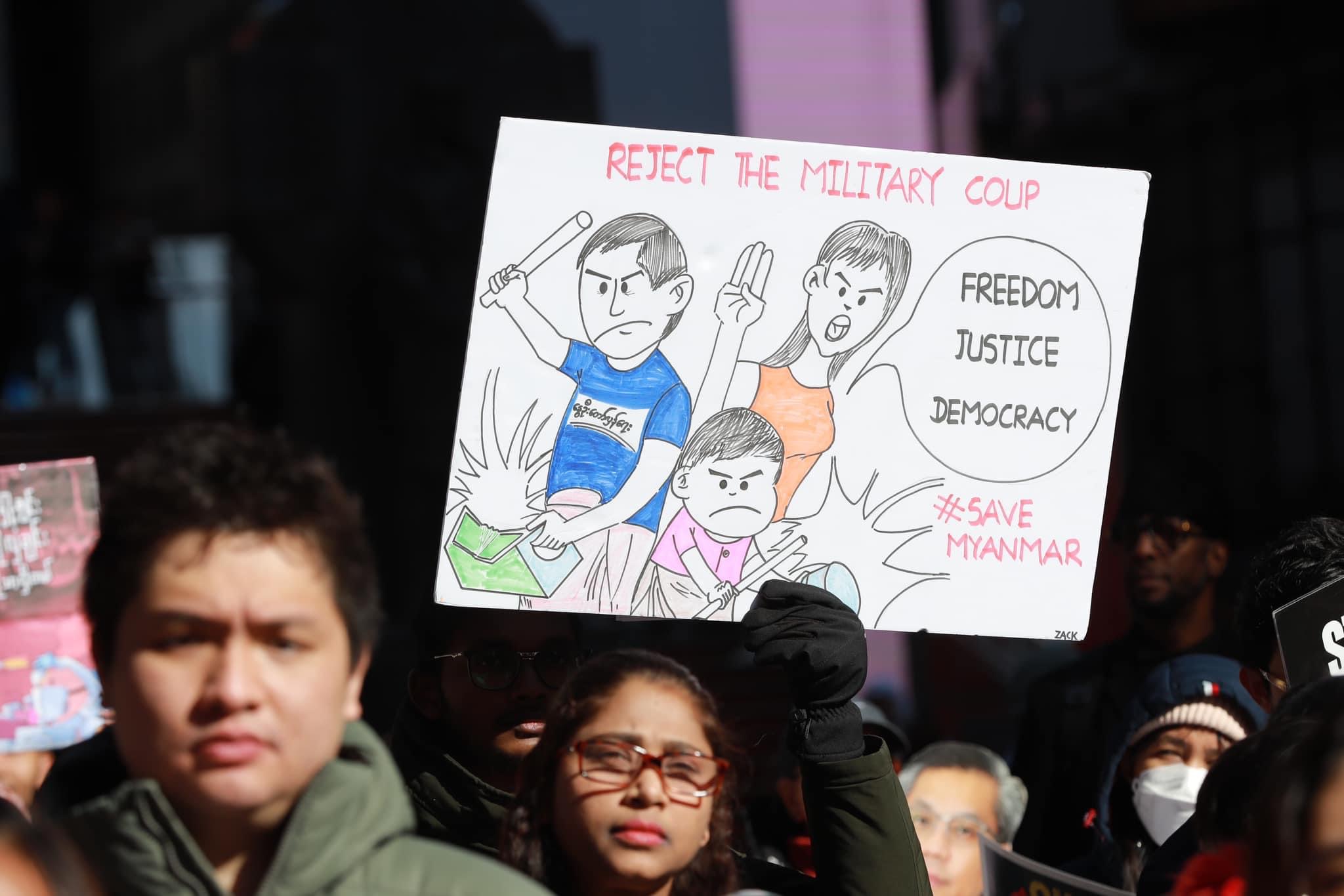Guest Contributor
Igor Blazevic
Thitinan Pongsudhirak, professor and senior fellow at the Institute of Security and International Studies at Chulalongkorn University, published an op-ed in the Bangkok Post under the title Reversing Myanmar’s internal strife. Let me quote from it as there are many good observations made by Thitinan Pongsudhirak on Burma’s National Unity Government (NUG) in it.
“Broadening and deepening the NUG-led government will require elite consensus, mass support, inclusive and popular participation, administrative capacity and a measure of centralisation. The NUG has to be able to exert authority over its vast majority of supporters, loyalists and citizens on its side of the country. Observers near and far would be considered about Myanmar’s political breakup, which would worsen the scourge of drugs, transnational crimes, human trafficking, illicit trade and broader instability.”
“Indeed, the Tatmadaw’s biggest advantage, apart from an overwhelming force of arms, is that it is the authority in power which can be dealt with, able to provide a semblance of territorial integrity and cohesion despite facing a nationwide uprising against its rule. Thus the NUG must be able to show that it can hold Myanmar together if and when the SAC [State Administrative Council = military junta] loses its grip on power.”
Let me add a few comments.
In principle, Thitinan Pongsudhirak is right. One of our biggest obstacles to gain bigger international support is the fear that if the junta is defeated that Myanmar will become ungovernable chaos. So true, Myanmar’s anti-junta alliance needs to project capacity to govern. This is all about perception. The NUG and EROs (Ethnic Resistance Organizations) alliance need to look like a credible alliance which is politically committed to pursue the COMMON project of Federal Democratic Myanmar.
However, the problem is how to project capacity to govern with such limited resources and no substantial assistance from either ASEAN or from the West. I see that as an intellectual task for all of us who are assisting Myanmar’s Spring Revolution. We need to find a way to break this “chicken – egg situation” – what should come first, and we should persuade regional and international actors that the only way to solve the Myanmar crisis is to put more “eggs” below the anti-junta “chicken”.
Internationals have this prejudice (or assumption) that without military there will be total chaos in Myanmar. A war of everybody against everybody. That is why they want to push both the NUG, EROs and the junta to “all-inclusive national dialogue of all stakeholders”. That is also why well-minded, well-informed and supportive authors like Thitinan Pongsudhirak are advising – the NUG should show capacity to govern, it should show capacity of command and control.
Partly that is the truth, we all know that we should do that. But on the other side, how one can project authority when you have very low financial and material resources (while the junta still has huge revenues from for example gas) and, for very objective reasons, also have limited human capacity (huge number of people with capacity to lead are imprisoned and tortured when arrested, other leading people are without proper teams, everybody is in huge insecurity, families and property of people who are openly connected with the NUG are immediately targeted, etc.).
I think that we should not primarily build the narrative we use in interaction with internationals on democracy and human rights language. Nobody among Myanmar’s neighbours and in Asia will support the anti-junta alliance because it is promising democracy. Not even democratic countries, the U.S., E.U., U.K., Australia will go far in supporting the anti-junta alliance because the people of Myanmar are struggling and sacrificing for the restoration of democracy.
Instead, we should argue: the junta’s futile effort to impose its rule through brutality and terror is driving Myanmar to what you are all afraid of – to collapse the country in war of everybody against everybody. The NUG and EROs together are the only stakeholders who can re-establish stability and security – but they are able to do so only if neighbours, ASEAN and the West stand by them and help them overcome current disproportionality in resources.
Instead of criticizing the “chicken” that it is not delivering enough “eggs”, ASEAN and the democratic West should stand by the NUG and anti-junta alliance that is aligned around the NUG and invest in the prospect of stability that they can deliver.
This is the only pragmatic and real-politics approach to solve the deepening Myanmar crisis and escalating conflict. Otherwise Myanmar’s neighbours, ASEAN and broader Asian region will get what they have been afraid of the most – failed state fractured in 5-7 territories controlled by different armed groups with chronic instability and ongoing low intensity conflict, with permanent humanitarian crisis, with collapsed economy, and with increase in “scourge of drugs, transnational crimes, human trafficking, illicit trade and broader instability.”
Igor Blazevic,
Senior Adviser at the Prague Civil Society Centre and lecturer at the Educational Initiatives Myanmar
———————-
This commentary refers to article Reversing Myanmar’s internal strife by Thitinan Pongsudhirak



